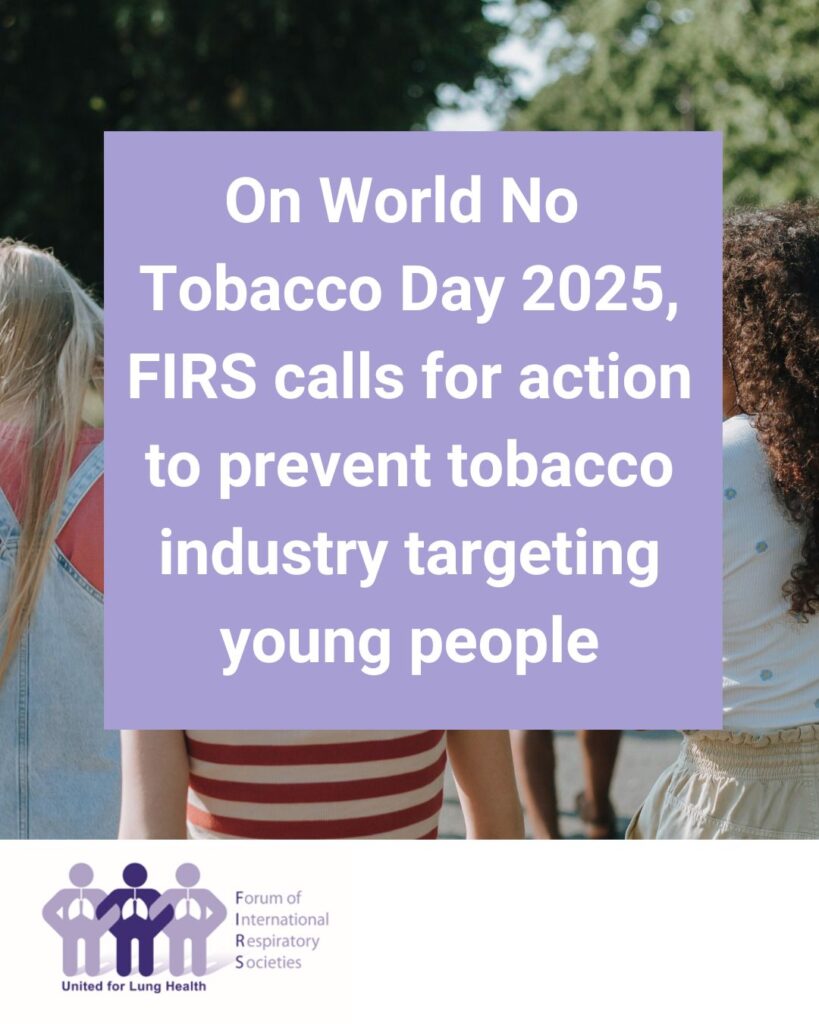
EventsWorld Days
World No Tobacco Day, 31 May
Stop tobacco industry tactics targeting young people, say international lung health experts
On World No Tobacco Day (31 May, 2025) the Forum of International Respiratory Societies (FIRS), including member the APSR, supports the World Health Organization’s (WHO) efforts to expose and condemn the tobacco industry’s harmful tactics—many of which are aimed at young people.
This year’s World No Tobacco Day (WNTD) –themed ‘Unmasking the appeal: Exposing industry tactics on tobacco and nicotine products’ –aims to reveal the strategies employed by the tobacco and nicotine industries to make their harmful products enticing.
FIRS, founded by leading international respiratory societies and representing over 100,000 respiratory health professionals, joins the WHO in raising awareness, advocating for stronger policies—including a ban on flavours that make tobacco and nicotine products more appealing—and protecting public health.
According to the World Health Organization (WHO), 88 countries have no minimum age for purchasing e-cigarettes, and 74 countries lack any form of regulation for these products. According to the most recent WHO data, only four countries ban all flavours in e-cigarettes, while another four allow or restrict specific flavours. Just 11 countries prohibit all forms of advertising, promotion, and sponsorship of e-cigarettes, compared to 36 with partial bans, and six with no regulations. These gaps leave young people particularly vulnerable to targeted e-cigarette marketing.
FIRS supports the WHO’s call for a collective commitment to a healthier future and calls for policies to protect young people to be implemented as soon as possible.
Dr Filippos Filippidis, Chair of the European Respiratory Society’s Tobacco Control Committee, said: “The tobacco industry has always been targeting young people, making their products appealing using various strategies. Many countries have made substantial progress in limiting this ability through comprehensive bans in advertising and promotion, plain packaging, health warnings and restrictions on flavours. However, we continue to see products such as heated tobacco, e-cigarettes and nicotine pouches being successfully marketed to young people. The rise in the use of these products is a concerning trend that requires urgent action, both at a political and societal level.
“By working together to bring about a tobacco-free generation, we can help save millions of lives. The most important thing we can do right now is ensure that the tobacco industry cannot freely appeal to young people – we must create a sensible barrier to protect them from harmful products.”
More information on this year’s WNTD can be found on the WHO website.
About the Forum of International Respiratory Societies (FIRS)

